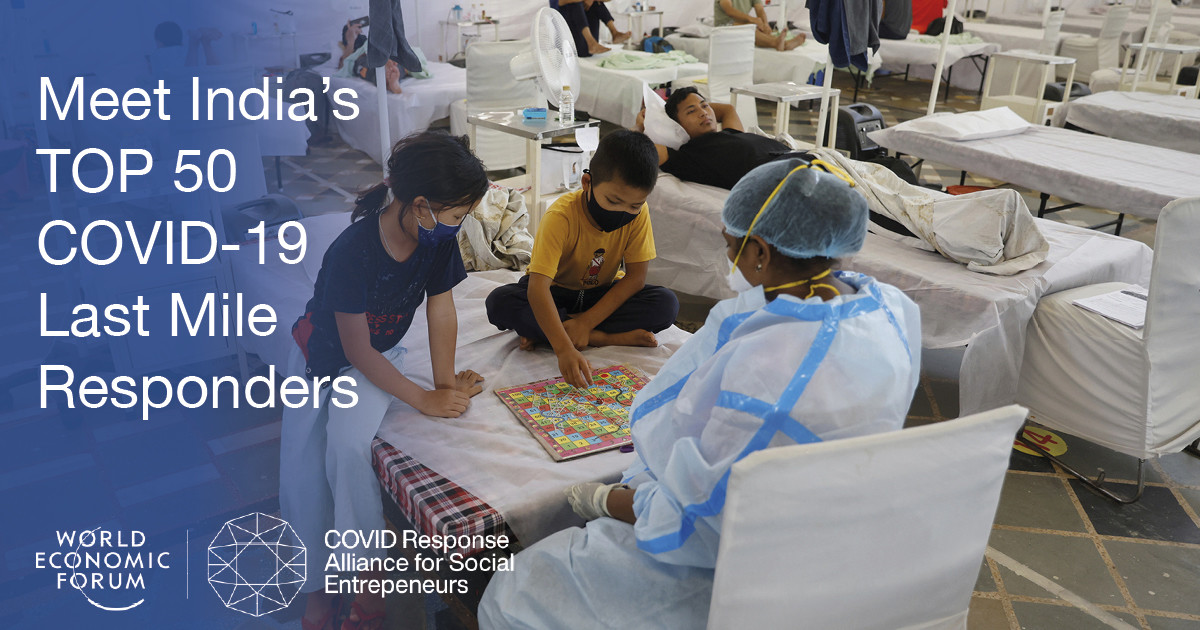COVID-19: What you need to know about the coronavirus pandemic on 1 September

Schools around the world are reopening - many with restrictions still in place.
Image: REUTERS/Mohammed Benmansour
Explore and monitor how COVID-19 is affecting economies, industries and global issues
Stay up to date:
COVID-19
- This daily round-up brings you a selection of the latest news and updates on the COVID-19 coronavirus pandemic, as well as tips and tools to help you stay informed and protected.
- Top stories: Fresh call for faster distribution of COVID-19 vaccines; Asia's factories hit by pandemic disruption; 70% of EU adults now fully vaccinated.
1. How COVID-19 is affecting the globe
Confirmed cases of COVID-19 have passed 217.7 million globally, according to Johns Hopkins University. The number of confirmed deaths stands at more than 4.51 million. More than 5.29 billion vaccination doses have been administered globally, according to Our World in Data.
Australian officials have extended a COVID-19 lockdown in Melbourne and signalled a shift in strategy from zero COVID to focus on rapid vaccination.
New Zealand, though, has eased tough lockdown restrictions for most of the country, although Auckland will remain under strict restrictions for another two weeks.
Ireland is set to drop almost all COVID-19 pandemic restrictions in October, Prime Minister Michael Martin said yesterday.
South Korea has secured 1.5 million doses of Pfizer and Moderna COVID-19 vaccines from Romania, the health ministry has said.
Around 14 million people in the United States had their first dose of a COVID-19 vaccine in August - about 4 million more than in July.
The European Commission announced yesterday that 70% of the European Union's adult population was now fully vaccinated.
Singapore reported 156 new local COVID-19 cases yesterday - the highest number in almost six weeks.
A new coronavirus variant that was first detected in South Africa in May does not appear to be spreading, the World Health Organization said on Tuesday.
India’s leading COVID-19 last-mile responders
2. Fresh call for high-income countries to share vaccine doses
The former Co-Chairs of the Independent Panel for Pandemic Preparedness and Response (IPPPR), Ellen Johnson Sirleaf, former President of Liberia, and Helen Clark, former Prime Minister of New Zealand, have called for the distribution of COVID-19 vaccine doses from high-income to low-income countries to be sped up.
“The Independent Panel report recommended that high-income countries ensure that at least one billion doses of vaccines available to them were redistributed to 92 low- and middle-income countries by 1 September, and a further one billion doses by mid-2022,” Sirleaf and Clark said. “Ensuring that all those around the world most vulnerable to the impact of the virus, including healthcare workers, older people and those with significant co-morbidities, can be vaccinated quickly is a critical step towards curbing the pandemic.”
So far, 99 million doses have been shipped via COVAX, far short of the one billion doses the Independent Panel called for. “High-income countries have ordered over twice as many doses as are needed for their populations. Now is the time to show solidarity with those who have not yet been able to vaccinate their frontline health workers and most vulnerable populations," the Co-Chairs said.
3. Asia's factories hit by pandemic disruption
Factory activity in Asia lost momentum last month as rising COVID-19 cases in the region hit supply chains.
Southeast Asia, a manufacturing hub for many global companies, was especially badly hit. Factory activity shrank in Viet Nam, Indonesia and Malaysia as a result of COVID-19 disruption. "If the strict lockdown measures continue, South-East Asia may find it hard to remain a global production hub," said Makoto Saito, an economist at NLI Research Institute.
China's factory activity also contracted in August for the first time in nearly 1.5 years - a worrying sign for the global economy.
"Virus disruptions add to the list of headwinds for the region's producers, including semiconductor shortages and high shipping costs," said Alex Holmes, emerging Asia economist at Capital Economics.
Accept our marketing cookies to access this content.
These cookies are currently disabled in your browser.
Don't miss any update on this topic
Create a free account and access your personalized content collection with our latest publications and analyses.
License and Republishing
World Economic Forum articles may be republished in accordance with the Creative Commons Attribution-NonCommercial-NoDerivatives 4.0 International Public License, and in accordance with our Terms of Use.
The views expressed in this article are those of the author alone and not the World Economic Forum.
Forum Stories newsletter
Bringing you weekly curated insights and analysis on the global issues that matter.
More on Health and Healthcare SystemsSee all
Johnny Wood and Madeleine North
May 16, 2025
Ahmed Elhusseiny
May 15, 2025
Shyam Bishen
May 13, 2025




